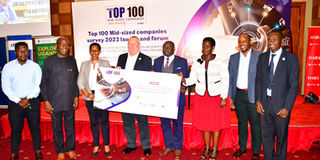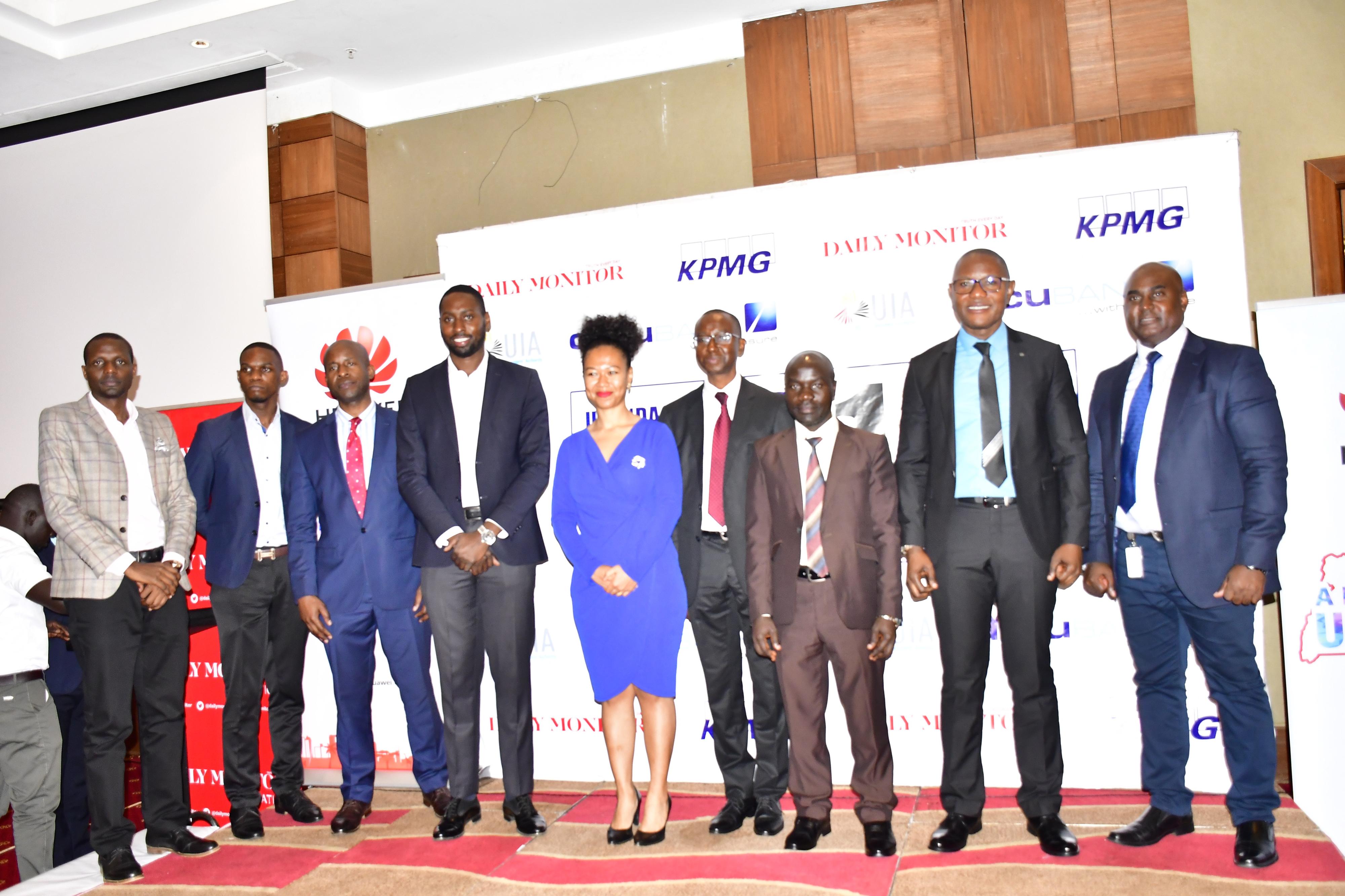Tourism ministry joins top 100 mid-sized company survey

What you need to know:
Speaking at the Uganda Top 100 mid-sized companies 2023 edition launch and forum yesterday, Ms Doreen Katusiime, the Permanent Secretary in the Tourism ministry, said the government has the duty to bring together ministries, departments and agencies
The Ministry of Tourism has announced its intention to partner on the Top 100 mid-sized company survey to serve as a bridge between the private sector, government ministries, departments, and industries.
The ministry intends to provide guidance regarding potential investment opportunities.
Speaking at the Uganda Top 100 mid-sized companies 2023 edition launch and forum yesterday, Ms Doreen Katusiime, the Permanent Secretary in the Tourism ministry, said the government has the duty to bring together ministries, departments and agencies.
“Government does not own hotels, the leisure and hospitality facilities, it is the private sector who own them and it is in workshops like these that we bring in the private sector to listen to the Petroleum Authority of Uganda and dfcu bank where to invest or access loans and our work is to coordinate and regulate,” she said.
The ministry joins Uganda Investment Authority, Uganda Securities Exchange, and dfcu to sponsor the initiative started by the Nation Media Group (NMG) and KPMG, 15 years ago to identify and celebrate the accomplishments of small and medium sized enterprises as the backbone of the economy.
According to Mr Tony Glencross, the managing director of NMG Uganda, the Top 100 mid-sized company survey has become the most consistent survey in the SME sector in Uganda, a significant milestone worth celebrating.
“Throughout the years, the Top 100 mid-sized companies’ survey has grown into a remarkable platform attracting over 200 SMEs annually. These businesses exemplify dedication, resilience, and drive for excellence. The financial questionnaires used for ranking provide valuable insights into their growth and development over a specific period. It allows us to identify the champions,” he said.
The survey, which kicks off on June 1, ends on September 30.
This year’s Top 100 mid-sized companies survey will run under the theme ‘Inclusive access to business information, services, technologies and financing for SMEs’’
Mr Tom Ayebare Rukundo, the manager of economic and financial analysis at the Petroleum Authority, said investment in the Albertine Graben for oil production, the crude oil pipeline and construction of the oil refinery, has attracted opportunities in the tourism, leisure and hospitality value chain which the private sector should take advantage of.
Mr Stephen Ineget, a partner/country leader of KPMG Uganda, said the annual survey aims at helping the SMEs improve access to business information.
He emphasized the contribution of new partners such as the Innovations Village, stating that their expertise in digitalisation plays a pivotal role in supporting SMEs. Mr Ineget mentioned the support of dfcu Bank in terms of financing, and highlighted the efforts of the Uganda Investment Authority in establishing industrial parks to attract and accommodate more SMEs.
When asked about the performance of the survey over the past 15 years, Mr Charles Mudiwa, the CEO of dfcu Bank, expressed optimism regarding the bank’s fulfilment of its mandate since its establishment in 1964 as a development finance company.
Mr Mudiwa highlighted achievements such as increased access to finance, market opportunities, and development finance for SMEs since 2017.
“Dfcu Bank has been supporting SMEs since our inception in 1964. Ours is a journey that has thousands of successful SME stories and as we launch the 2023 Top SMEs Survey, I recommit dfcu’s support to this sector.
“On their journey, SMEs come across multiple offers of partnerships, especially if they are successful. It’s important that these businesses review their choice of partnerships closely as it can make or break them.”
“SMEs play a significant role in the economy. They are a driving force for innovation, creating employment and generating income. However, the success of these businesses depends on various factors, which include access to essential services and resources,” he notes.




